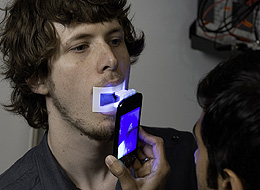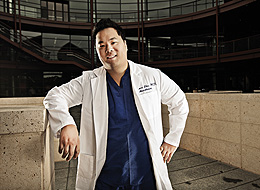Ask Stanford Med: Hank Greely taking questions on Supreme Court review of health-care law
Yesterday, the U.S. Supreme Court heard the opening arguments in a historic three-day session that could decide the fate of the Affordable Care Act. Stanford law professor Hank Greely, JD, summarized the day’s proceedings and offered his perspective in a previous Scope entry.
Over the next two days, Greely will continue to follow the oral arguments and comment briefly on the issues here on Scope. Additionally, he will take questions on the debate via Twitter as part of our Ask Stanford Med series. Questions can be submitted by either sending a tweet that includes the hashtag #AskSUMed or posting your question in the comments section below.
In submitting questions, please abide by the following ground rules:
- Stay on topic
- Be respectful to the person answering your questions
- Be respectful to one another in submitting questions
- Do not monopolize the conversation or post the same question repeatedly
- Kindly ignore disrespectful or off topic comments
- Know that Twitter handles and/or names may be used in the responses
Greely will answer a selection of your questions at the end of each day and post his responses in a Q&A on Scope.
Previously: The Supreme Court on health reform: day one, Health reform opponents lose in another appellate court, Thoughts on the Eleventh Circuit health-care law ruling and U.S. Appeals Court rules against health-care law
Photo by dbking







March 27th, 2012 at 3:21 pm
There has been much discussion about the three days of oral arguments. My question is what happens at the end of those three days? Will the fate of the health-care act be known on Wed, or are we in for weeks/months of uncertainty?
March 28th, 2012 at 1:05 pm
You mentioned your support of the individual mandate. Is this a legal or personal view - or both?
March 28th, 2012 at 10:13 pm
Will the Affordable Care Act survive without the individual mandate?
March 29th, 2012 at 12:53 pm
Why can’t the individual mandate be reduced to just buying catastrophic insurance that prevents one from going bankrupt due to medical bills ? This is the heart of the problem. Why make someone pay for choices of others to have children ( maternity ) or to visit a doctor 3 times a year. Let’s just fix the unique commerce problem that Kennedy talked about. Don’t use that unique problem to take away more liberty by expanding into other so problems ( like problem of having a child ?? )